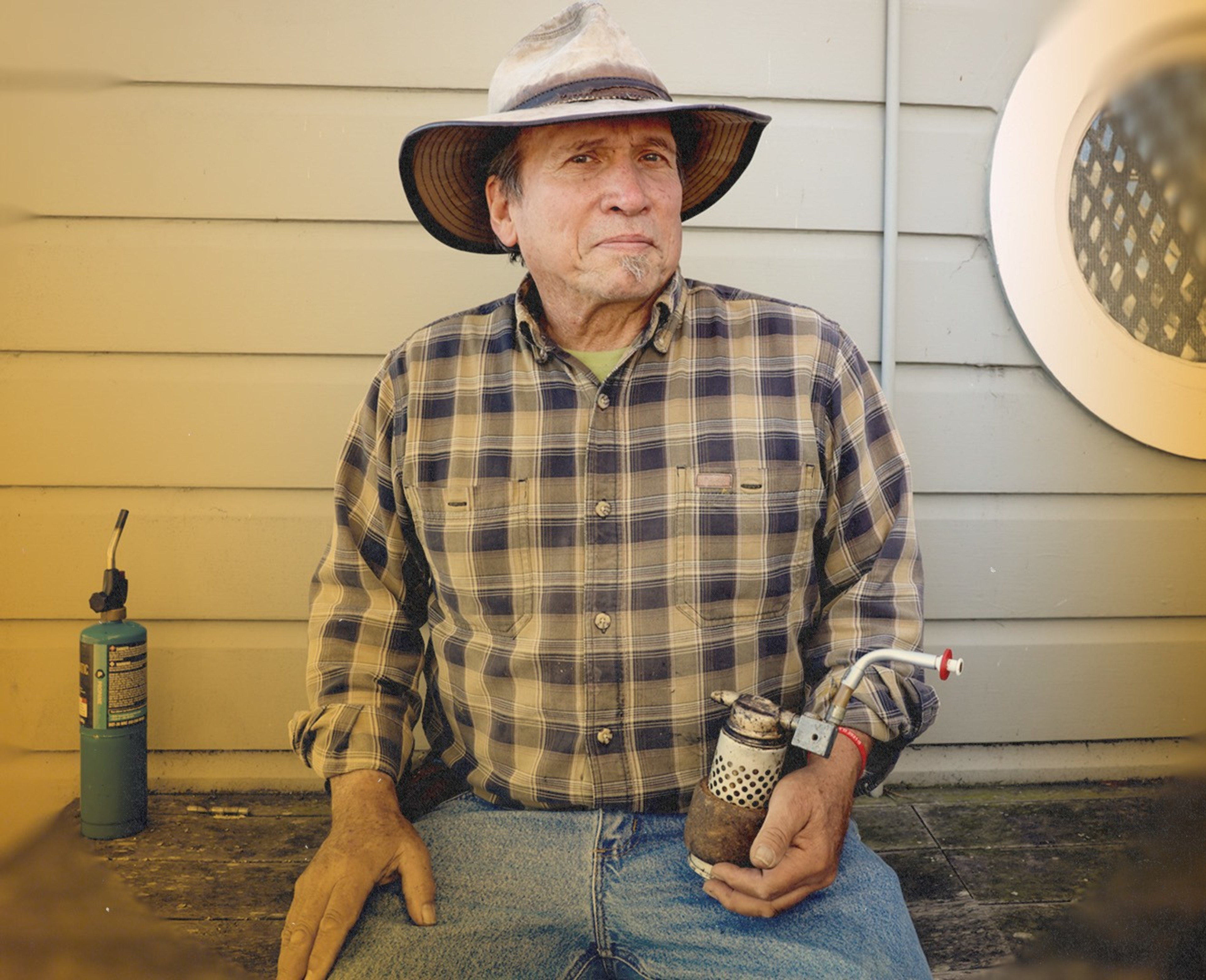Skip to main content








Know Your Neighbors
Robert MacKimmie
and His Local Bees Capture the Tastes of San Francisco in a Honey JarWritten by Christina Campodonico
Published Nov. 13, 2022 • 11:05am
City-grown honey is a “symphony for the taste buds,” according to local beekeeper Robert MacKimmie. The founder of City Bees has been raising honey bees and harvesting their liquid gold in San Francisco since 1996.
“San Francisco is just a really remarkable honey city,” the longtime apiarist said. And he should know. He’s been raising bees in the city for 27 years. “Each neighborhood has its own unique botany, and that translates into unique flavors that result from each neighborhood’s weather.”
For example, bees that collect pollen from the sprawling groves of blue gum eucalyptus in Golden Gate Park often produce a honey with a rich and buttery taste, like a chardonnay or butterscotch. Potrero Hill honey has a “warmth and wildness” with hints of anise, because of the wild fennel growing there. Telegraph Hill honey can have notes of citrus, on account all the lemon trees in the old Italian neighborhoods of North Beach. Taken together, the city’s fog, weather patterns and hilly topography form a one-of-a-kind environment for the creation of honey, MacKimme said.
As a full-time local farmer, MacKimmie tends to hives in backyards and on properties across the city. In exchange for the space from generous hosts, MacKimmie pays for rent in honey and then takes the rest to sell at local farmers’ markets. You can find MacKimmie at the Ferry Building farmers’ market on Saturdays and the Clement Street farmers’ market on Sundays, where you can taste test his “symphony” of honeys harvested from the city’s various nooks and crannies. MacKimmie has about 25 beekeeping sites scattered across the city, which he harvests from at regular intervals to get what he calls “snapshots” of the city’s blooming flora and botanical landscapes.
These days, MacKimmie is not just focused on delivering nuanced honeys to his clientele but doing all he can to preserve and defend San Francisco’s pint-sized pollinators against the ongoing threats of parasites and climate change. He advises against amateur beekeeping, suggesting that would-be apiarists plant native gardens instead. Leaving this sweet job to the professionals will help keep the larger population of bees healthier and less at risk of spreading disease and parasites, MacKimmie said. The honey will probably taste better, too
“San Francisco is such a beautiful place,” MacKimmie said. “When I can actually allow the bees to put that into a jar and then share that with people, it’s magic.”
Photos by Morgan Ellis/The Standard

Special powers
A lack of ego.
Arch enemies
Parasites.
Weaknesses
Being a carbon-creating human.
Lineage
The millennia-old human tradition of beekeeping.
Current mission
To keep bees healthy and make wonderful food.
'San Francisco is such a beautiful place. When I can actually allow the bees to put that into a jar and then share that with people, it's magic.'
